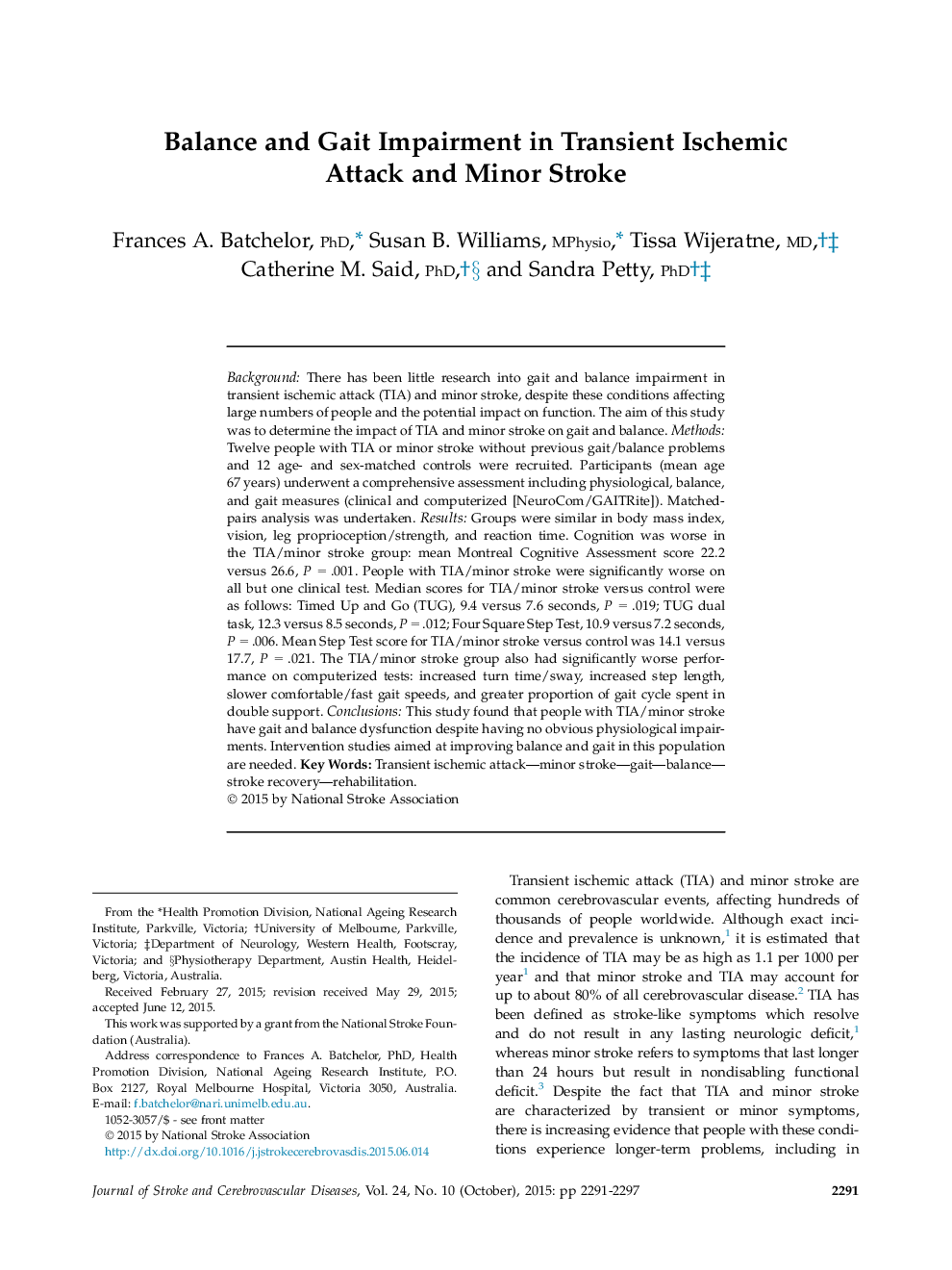| Article ID | Journal | Published Year | Pages | File Type |
|---|---|---|---|---|
| 2709970 | Journal of Stroke and Cerebrovascular Diseases | 2015 | 7 Pages |
BackgroundThere has been little research into gait and balance impairment in transient ischemic attack (TIA) and minor stroke, despite these conditions affecting large numbers of people and the potential impact on function. The aim of this study was to determine the impact of TIA and minor stroke on gait and balance.MethodsTwelve people with TIA or minor stroke without previous gait/balance problems and 12 age- and sex-matched controls were recruited. Participants (mean age 67 years) underwent a comprehensive assessment including physiological, balance, and gait measures (clinical and computerized [NeuroCom/GAITRite]). Matched-pairs analysis was undertaken.ResultsGroups were similar in body mass index, vision, leg proprioception/strength, and reaction time. Cognition was worse in the TIA/minor stroke group: mean Montreal Cognitive Assessment score 22.2 versus 26.6, P = .001. People with TIA/minor stroke were significantly worse on all but one clinical test. Median scores for TIA/minor stroke versus control were as follows: Timed Up and Go (TUG), 9.4 versus 7.6 seconds, P = .019; TUG dual task, 12.3 versus 8.5 seconds, P = .012; Four Square Step Test, 10.9 versus 7.2 seconds, P = .006. Mean Step Test score for TIA/minor stroke versus control was 14.1 versus 17.7, P = .021. The TIA/minor stroke group also had significantly worse performance on computerized tests: increased turn time/sway, increased step length, slower comfortable/fast gait speeds, and greater proportion of gait cycle spent in double support.ConclusionsThis study found that people with TIA/minor stroke have gait and balance dysfunction despite having no obvious physiological impairments. Intervention studies aimed at improving balance and gait in this population are needed.
